Notes on Contributors
Jeffrey Butler is Professor of History at Wesleyan University in Connecticut. He has written extensively on the history of South Africa and is currently preparing a monograph on the history of the Eastern Cape town of Cradock.
Hermann Giliomee is Professor of Politics at the University of Cape Town and has written widely on the history of the Afrikaans-speaking people of South Africa. His works include Ethnic Power Mobilized: Can South Africa Change? (1979), and he is currently editing, with André du Toit, a multi-volume study, Afrikaner Political Thought: Analysis and Documents .
Patrick Harries is Lecturer in History at the University of Cape Town and has written extensively on the history of southern Mozambique and northeastern South Africa. He is currently writing a study of the impact of the Swiss Mission on this area.
Ian Goldin , since completing his M.Sc. at the London School of Economics and D.Phil, at Oxford University, has worked as an economist. His work on the Western Cape arises out of an interest begun while studying at the University of Cape Town and later explored in his doctoral dissertation. His published work on the subject of class and race includes Making Race: The Politics and Economics of Coloured Identity in South Africa (London, 1987) and a number of articles.
Bogumil Jewsiewicki taught at the University of Zaire (Lumumbashi) from 1969 to 1976 and now teaches at the Université Laval in Quebec. He has published numerous works on the socioeconomic history of colonial Zaire and on the historiography of African studies. His present research includes work on collective memory and social identity.
Hugh Macmillan formerly taught at the University of Swaziland and is now Senior Lecturer in History at the University of Zambia. He has written about the history of Malawi, Swaziland and South Africa.
Shula Marks is Professor of History at the University of London and the Director of the Institute of Commonwealth Studies at the University. A past editor of the Journal of African History and a member of the editorial board of the Journal of Southern African Studies, her own published work on South African history
includes Reluctant Rebellion (1971). She has edited three influential volumes on South African social and economic history.
Robert Papstein currently lectures in African history at the Free University of Amsterdam, the Netherlands. He conducted field research among the Luvalespeaking peoples of the Upper Zambezi Valley between 1972 and 1974 and formerly lectured at the University of Zambia.
Jeanne Penvenne is Research Associate of the African Studies Center and an instructor in the Metropolitan College of Boston University. Her area of special interest is labour history.
Terence Ranger taught at the University College of Rhodesia and Nyasaland between 1956 and 1963 and then at the Universities of Dar es-Salaam and California at Los Angeles. He has written many books, including Dance and Society in Eastern Africa, 1890–1970 (1975) and Peasant Consciousness and Guerilla War in Zimbabwe. A Comparative Study (1985). He is now Professor of Race Relations and African Studies to the University of Oxford and is continuing his research on the history of Zimbabwe.
Allen F. Roberts is Associate Professor of African-American World Studies at the University of Iowa. He is interested in the ways people cope with social change and writes on symbolization and systems of thought, local-level political economy, technology transfer, and African art and material culture. He has also studied the social impact of solar energy technology applications in developing countries; curated an international exhibition of Tabwa art; and co-founded (with his wife, art historian Mary Kujawski) the African National Museums Program at the University of Michigan.
Brian Siegel teaches anthropology and race and ethnic relations to the Sociology Department of Furman University, Greenville, South Carolina. His interest in the Lamba and their history derives from his dissertation research for the University of Wisconsin-Madison on ethnic stereotypes and antagonisms to the rural Zambian Copperbelt.
Leroy Vail is Associate Professor of History at Harvard University and Director of its Program on South African Studies. He taught at the Universities of Malawi and Zambia between 1967 and 1979 and has written widely on the history, literature and linguistics of east central Africa. With Landeg White he has written Capitalism and Colonialism in Mozambique (1981) and is currently engaged on books discussing the political role of African songs and poetry and on the history of Central African spirit possession.
Landeg White is Director of the Centre for Southern African Studies at the University of York. He has taught at the Universities of the West Indies, Malawi, Zambia and Sierre Leone. He has published several books on literature, both on the West Indies and Africa, most recently Literature and Society in South Africa (1985). He has also written Magomero: Portrait of an African Village (1987) and, with Leroy Vail, Capitalism and Colonialism in Mozambique (1981).
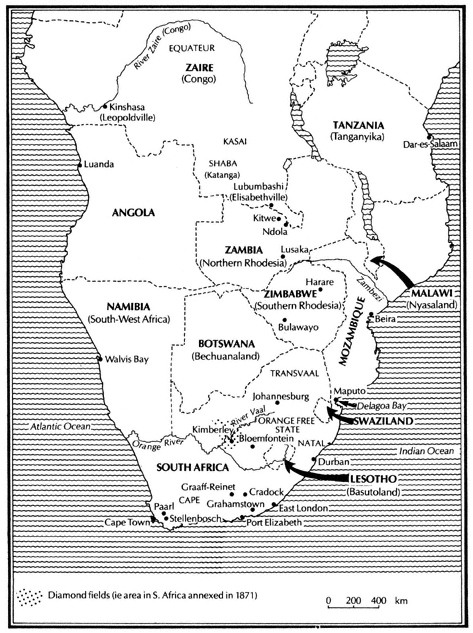
1
Southern Africa
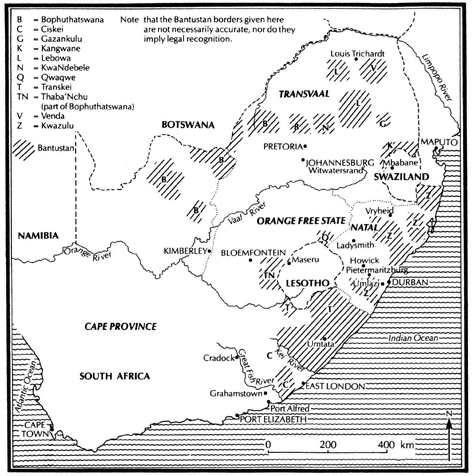
2
Bantustans in South Africa
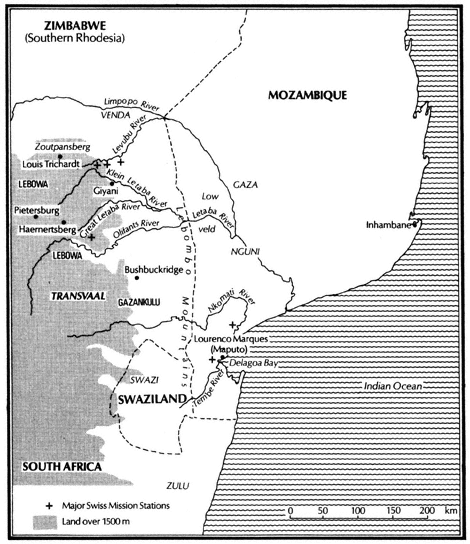
3
The Eastern Transvaal, Swaziland and southern Mozambique
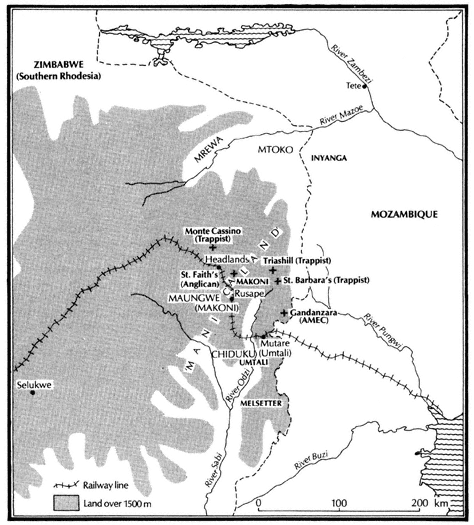
4
North-eastern Zimbabwe and the Mozambique border
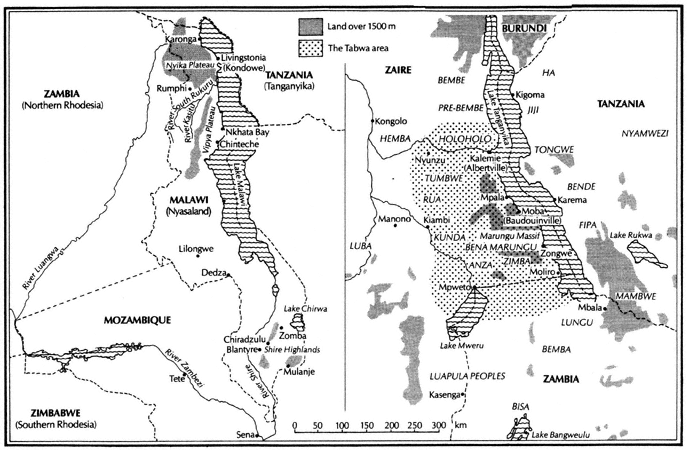
5
Malawi
6
The Tabwa area with surrounding ethnic groups
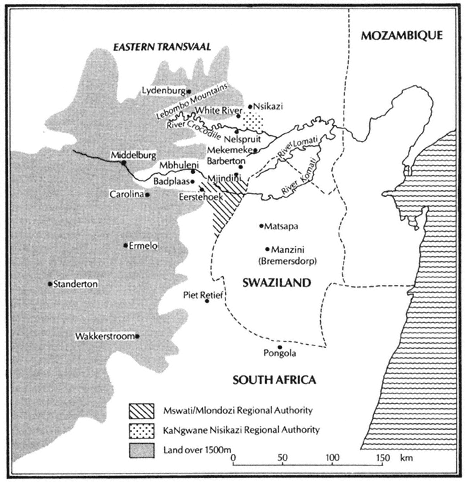
7
Swaziland and the Eastern Transvaal
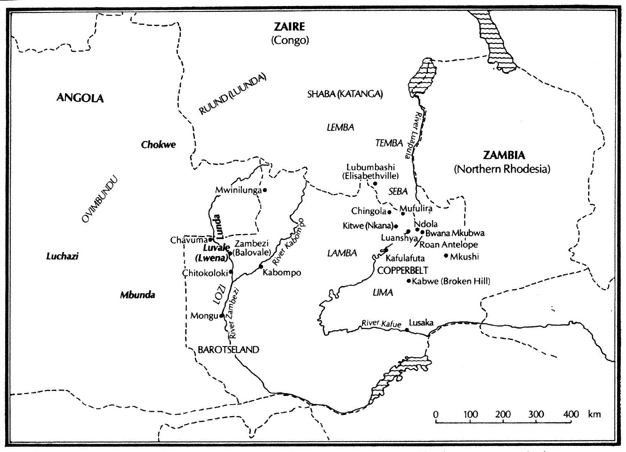
8
The Upper Zambezi region of Zambia and the Central African Copperbelt
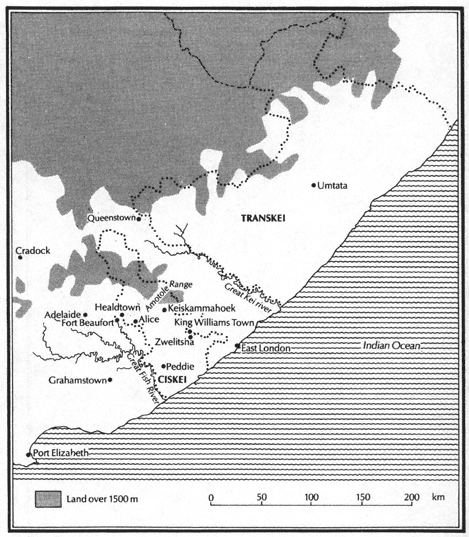
9
The Ciskei and surrounding area